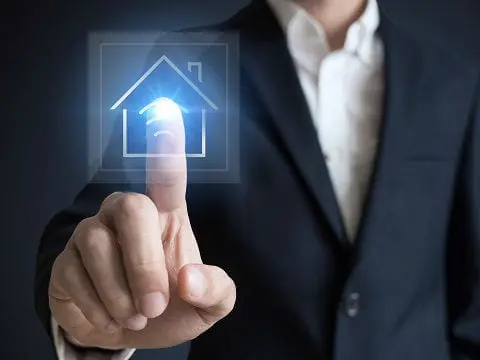
Smart home technology has gone mainstream. Case in point: Alexa’s “lost voice” Super Bowl ad.
Smart home features are no longer relegated to the high-end home market, or to only millennial techies, and their capabilities are rapidly advancing. Savvy Realtors can help buyers understand the myriad options and the added value that smart technologies bring to the new homes they are selling.
Who Is Buying Smart?
A recent survey by Coldwell Banker found that nearly half of the 4,000 homeowners it polled either own smart home technology or planned to invest in it.
Perhaps most telling is that nearly three-fourths of homeowners aged 18 to 34 would pay thousands more for homes with smart home features. And it’s not just high earners interested in these products. Survey respondents with annual household incomes between $50,000 and $100,000 are adopting smart home technology at nearly the same pace as more affluent homeowners.
Defining ‘Smart’
The options for smart home features have grown exponentially in recent years, making a broad-brush definition challenging.
“Smart technology generally speaks to a device’s ability to operate independently of input from the end user and, frequently works in concert with other devices in the home,” says Chris Coltharp, sales manager with Austin-based Mesa Home Systems. “For example, a smart security system may be programmed to automatically turn on smart lights if there is an alarm or perhaps would notify a homeowner via smartphone if the garage door was left open.
“Additionally, smart appliances such as sprinkler systems may receive weather reports from a nearby weather station and adjust the watering schedule accordingly,” he says. “For the most part, smart devices are connected to the Internet to allow real-time information to dictate the status of the devices.”
Cost and Value
Smart technology costs — and the added value they bring to a home — can vary greatly depending on the system or devices and the level of control desired. For an average home, systems may run between $2,000 and $25,000 and can increase dramatically as the size of the home increases.
“There are many definitions to ‘smart’ home, from a simple Nest thermostat that can be controlled via your phone remotely to a full-blown $100,000-plus Crestron system that controls lights, AC, shades and full AV system,” says Austin homebuilder Matt Risinger, CEO of Risinger & Co. “As a Realtor, you want to be sure you are coaching your clients well in this area and are cautious about the value of these systems.”
Trending Now
In 2015, security cameras were the most sought-after smart home product for consumers in the new-home market, according to Lowe’s Smart Home Survey.
“Sadly, as a sign of the times, the biggest trend lately is interest in surveillance equipment,” says Coltharp. “While technically not classified as smart technology, the fact that you can view many cameras on your smart devices and control other devices based on who might be in the field of view … drags surveillance into the realm of ‘smart.’ ”
In addition, the Lowe’s survey found that nearly half of respondents were looking to smart tech to improve energy efficiency in their home and cut costs, with smart features like temperature and lighting controls.
“I think that nearly every homeowner wants some amount of whole home audio, security, light control and HVAC control. That can be a simple system like Sonos, Apple HomePod and Nest. But many buyers want more robust systems,” says Risinger. “Smart home tech has always been a must-have when it came to audio/visual, but it’s still an evolving market when it comes to other features.
“I think every home today can benefit from a connected thermostat and some lighting and/or security controls,” he adds. “I’ve had a lighting control system in my house for 10 years and it’s been reliably turning on my outside security lights at dusk/dawn.”
Be Privy to Privacy
While smart systems enhance security, save costs and deliver convenience, they come with privacy risks for buyers and sellers. When property sells, Realtors should take extra precautions to protect the privacy of both parties.
